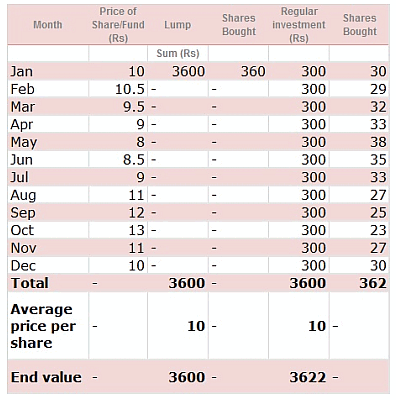Morningstar.in
Deciding when and how much to invest is almost as important as deciding what to invest in. If you are saving money in a bank account, the sooner you invest and the more you invest, the more money you will earn in interest. The amount of interest you receive can go up and down depending on the interest rate.
If you are investing in stocks or funds, the value of what you buy varies over time. Even in 'normal' market conditions it is possible for your investment to be worth less than it cost you.
Many investors try to 'time the market', which means that they make their investments at a time when they believe that values have fallen to such a level that the only way for prices to go is up. History has shown time and time again that this is extremely difficult to predict, even for seasoned investment professionals.
A simple way to smooth out the ups and downs of financial markets is to make smaller regular investments rather than one large lump sum.
The process of regular investment leads to an effect called rupee cost averaging, which is explained in the table alongside:
SIPs: How rupee cost averaging works
As you can see the amount invested (Rs 3,600) and the average price paid per share (Rs 10) is the same for both investments.
However, as the regular investor was buying shares at differing values throughout the year, the overall effect is that the regular investor has more shares and -- even though the share price is the same at the end of the year as at the start -- has more money.
Remember also that if you have a lump sum and decide to drip-feed your money in through regular investments, the money that isn't invested each month can still be earning interest in a bank account.
In the Indian mutual fund industry, the concept is commonly known as systematic investment planning. Most fund companies also allow you to set up an SIP to build up holdings in their funds.



Comment
article